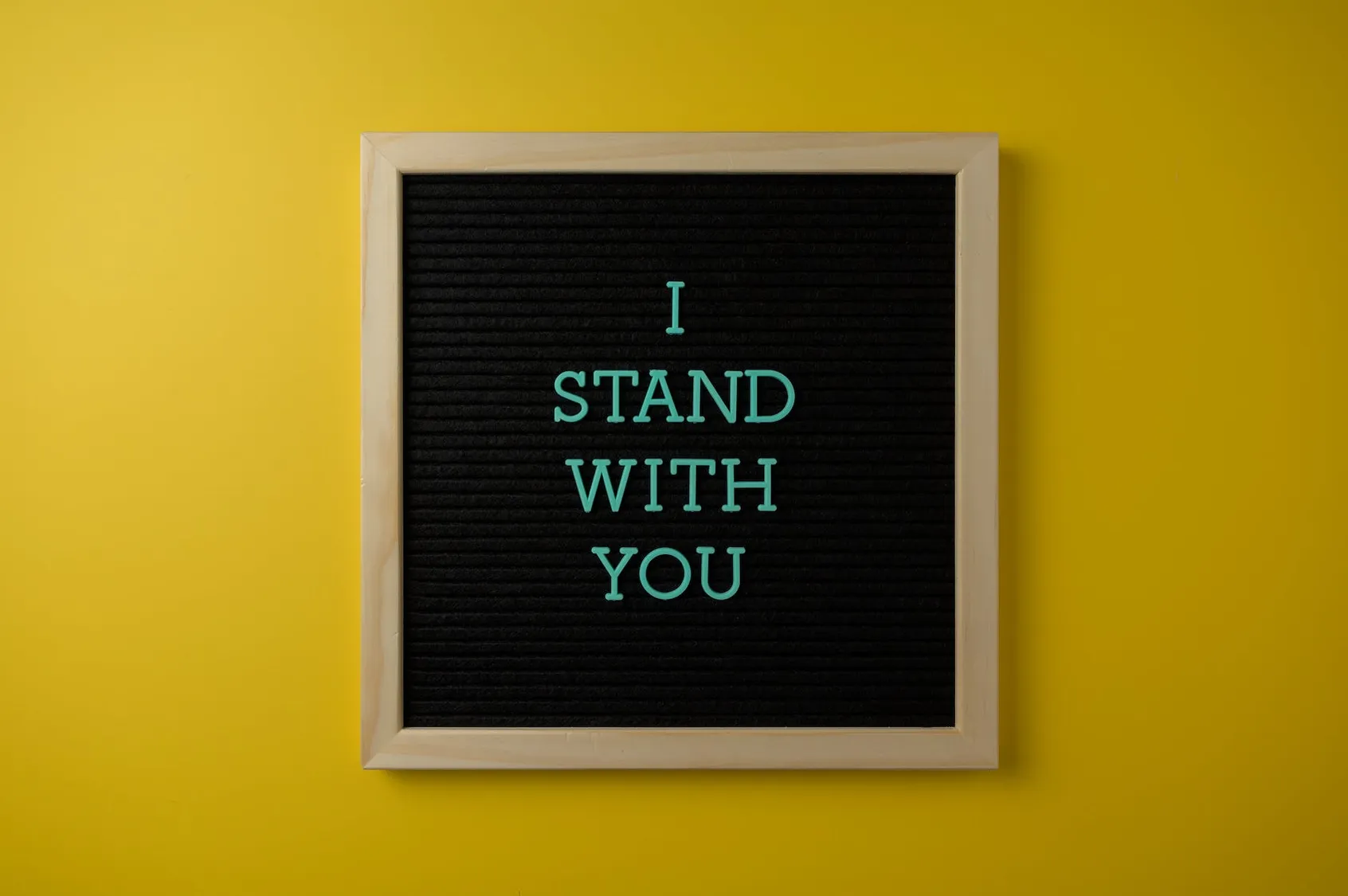Heartbreak is one of the most painful experiences a person can go through. It can leave you feeling confused, helpless, and overwhelmed. Whether it was a long-term relationship or a short fling, the pain of a breakup can be devastating.
One of the most confusing aspects of a breakup is trying to understand why it happened in the first place. Questions like “But if you loved me, why did you leave me?” often plague people trying to move forward from a breakup. This article will explore the pain of heartbreak and offer a few strategies for understanding and coping with the hurt.
But If You Loved Me, Why Did You Leave Me?
This is the heart-wrenching question that many people find themselves asking after a breakup. It can be an incredibly painful experience, as heartbreak can cause a great deal of emotional turmoil and suffering. Understanding the various causes of heartbreak and how they can be addressed to help heal and move forward is important.
- Betrayal: One of the most common causes of heartbreak is betrayal. A betrayal can manifest in many forms, such as infidelity, dishonesty, or a lack of commitment. All these can lead to much pain and confusion, as you may have believed you had a strong connection with the other person. When this connection is broken, it can be difficult to understand why the other person would do something to hurt you.
- Unmet expectations: Another cause of heartbreak is unmet expectations. This can occur when the other person does not meet your expectations for them or the relationship. For example, you may have expected to be treated with kindness, respect, and understanding, but instead, you were met with criticism, temper, or neglect. This can cause great hurt and disappointment, as you may have expected more from the other person.
- Rejection: Heartbreak can also be caused by rejection. This can occur when the other person ends the relationship or refuses to commit. It can be especially painful if the other person has already established a connection with you and then suddenly withdraws. This can make you feel like you are not good enough or that something is wrong with you.
Heartbreak can be a difficult and painful experience, but there are ways to cope and heal. It is important to recognize the various causes of heartbreak, as this can help you understand why the other person behaved the way they did. Talking to supportive friends and family members can also be helpful, as they can provide comfort and understanding. Additionally, it can be beneficial to focus on activities that bring joy and be kind to yourself.
Ultimately, understanding the causes of heartbreak and the ways to cope can help you heal and move forward. With time, patience, and self-care, you can move past the pain and find happiness again.

Recognizing The Signs Of Heartbreak
Heartbreak is an emotion that can be extremely difficult to manage and understand. The pain of being left by someone you love can cause a person to feel a wide range of intense and conflicting emotions. Recognizing the signs of heartbreak is key to helping cope with the difficult feelings and experiences that come along with it.
- Sadness and emptiness: One of the most common signs of heartbreak is intense sadness and emptiness. This often includes feeling overwhelmed with sadness, feeling numb, and having a lack of motivation. Many people experience physical symptoms, such as insomnia, fatigue, loss of appetite, or even physical aches and pains.
- Guilt or regret: It is common to feel guilt or regret, manifesting in many forms. Some people might feel guilty for not doing enough in the relationship or for not trying hard enough. At the same time, others might feel regret for not recognizing the signs of a relationship that was not working.
- Anxiety and depression: Other signs of heartbreak include increased levels of anxiety and depression, as well as anger and resentment towards the person that left. This can cause a person to feel confused and isolated and to have difficulty focusing on tasks.
If you are experiencing any of these signs of heartbreak, it is important to speak to someone. This could be a family member, friend, or professional. It is important to recognize that heartbreak is a normal and natural emotion and that it is okay to feel it. With time, the pain of heartbreak can lessen, and it is possible to move forward and find hope and joy again.
Coping With Grief And Sadness
Coping with heartbreak can be one of the most difficult things a person can experience. It can bring up intense emotions that often leave us feeling overwhelmed, confused, and exhausted. After a breakup, allowing yourself time and space to grieve is important. This may include feeling overwhelmed with sadness, anger, guilt, or numbness.
It is important to remember that these feelings are all normal reactions to a significant loss. In order to process and heal, it is important to give yourself time and space to feel these emotions without judgment. Finding ways to take care of yourself and practice self-care is important. This may include journaling, talking to supportive friends and family, or engaging in activities that bring you joy. It is important to find healthy ways to express yourself and to avoid turning to unhealthy coping mechanisms such as drugs, alcohol, and self-harming behaviors.
Being gentle with yourself and having patience with the grieving process is important. It may help to remind yourself that you are capable of healing and that you will eventually be able to move on. It is also important to remember that your feelings are valid and that you are not alone in your pain. It is also important to remember that the pain of heartbreak will dissipate over time. Many resources are available to help you through the grieving process, including support groups, therapy, and online forums.
Understanding The Stages Of Grief
The pain of heartbreak is something that is universally experienced yet still remains difficult to comprehend. After all, if someone truly loves you, wouldn’t they stay? Yet, despite the confusion and suffering, it is possible to work through the stages of grief and find peace, acceptance, and even hope.
- Denial: The first stage of grief is denial. This is when the individual will try to push away the emotions and the reality of the situation. They may try to convince themselves that the other person will come back or that they will be able to forget the pain, even though deep down, they know that this isn’t true.
- Anger: The second stage is anger. At this point, the individual may feel resentful and bitter towards the other person or lash out at those around them. They must express these feelings healthily by journaling or talking to a friend.
- Bargaining: The third stage is bargaining. This is when the individual may start making deals with themselves or the other person to bring them back or make the pain disappear. Unfortunately, these efforts will likely be in vain, and the individual needs to accept that they cannot change the reality of the situation.
- Depression: The fourth stage is depression. This is when the individual will start to feel overwhelmed by sadness and despair, which can lead to feelings of isolation and loneliness. They need to find a support system and remember they are not alone in their pain.
- Acceptance: The fifth stage is acceptance. This is when the individual will finally come to terms with the fact that the other person has gone and that they are no longer a part of their life. Although it may still be painful, they can move on and find healing and peace.
No matter how difficult it may be, it is possible to work through the stages of grief and find acceptance and peace after heartbreak. It may take time, but it is a necessary part of the healing process and can lead to a stronger, more resilient version of yourself.

Identifying Unhealthy Coping Mechanisms
No one ever wants to experience heartbreak; however, it is a cruel reality that far too many of us have to face. It can be an incredibly difficult and painful experience, and it can be equally as hard to understand what has happened.
It can be incredibly easy to fall into unhealthy coping mechanisms amid heartbreak. These coping mechanisms can range from overindulging in alcohol to numbing our emotions through television and social media to even more dangerous behaviors like self-harm. While these behaviors may temporarily relieve the pain of heartbreak, they will not provide a lasting solution.
Recognizing these unhealthy coping mechanisms and their potential consequences is important. It is equally important to remember that it is possible to heal and move on from a heartbreak and that, with time and self-care, the pain will eventually subside.
Finding Healthy Ways To Express Your Emotions
Sometimes when we experience heartbreak, knowing how to express our emotions healthily can be difficult. It may feel like the only way to cope is to bottle up our feelings and try to ignore them, or even worse, to lash out and blame others. But while these tactics might provide temporary relief, the long-term consequences can be damaging.
It’s important to recognize that feeling hurt is natural and normal. Everyone can experience and express their emotions, even if they are uncomfortable. Rather than trying to push the pain away, sit with your feelings and explore them. Accept that you’re feeling sad and try to identify why.
Once you better understand your emotions, you can start to find healthier ways to express them. Writing can be a great way to process your feelings, whether that’s in a journal, on social media, or creating a poem or song. Talking to a trusted friend or family member can also help. You don’t need to go into detail if you don’t want to, but having someone to listen can be incredibly comforting.
It’s also important to take care of yourself during this difficult time. This could mean taking breaks from social media or reaching out to a therapist if you’re struggling to cope. You could also try engaging in activities that make you feel good, like walking, listening to music, or doing something creative.
Moving Forward After A Heartbreak
Moving forward after a heartbreak can be very difficult, but it is possible. Heartbreak can leave us feeling empty, confused, and overwhelmed with emotions. It can be hard to accept the loss and move forward, but it is important to remember that it is possible.
The pain of heartbreak can manifest in different ways, such as depression, anxiety, and difficulty sleeping. Taking care of yourself and finding healthy ways to cope with sadness and grief is important. Staying kind to yourself is also important as recognizing that healing takes time. Talking to a therapist or joining a support group can help you understand and process the emotions that come with heartbreak.
It is important to allow yourself to feel the emotions and take steps to move forward. It is also important to recognize that the pain of heartbreak is valid and a normal part of the healing process. Creating a routine and engaging in self-care activities, such as exercising or listening to music, can be beneficial in dealing with the pain of heartbreak. Staying connected to friends and family can also help distract from the pain and provide support.
Heartbreak is never easy, but healing and finding happiness are possible. Taking small steps and engaging in healthy coping mechanisms makes it possible to heal and move forward after a heartbreak. Giving yourself time, being gentle, and knowing that healing and finding joy are possible is important.

Learning To Forgive Yourself And Others
Heartbreak is one of the most painful emotions a person can experience. It can be experienced after a relationship’s end, a loved one’s death, or even during intense loneliness. Despite the pain, it is possible to learn how to forgive yourself and others for the hurtful things that have been said or done. This is the first step in understanding and healing the pain of heartbreak.
- The first step in forgiving is to recognize that no one is perfect. Everyone makes mistakes, and sometimes these mistakes lead to the end of a relationship. We can move toward forgiveness once we accept that mistakes can be made and that no one is solely responsible for the heartbreak.
- Another step towards forgiveness is understanding that not everyone can be in a relationship. Not everyone has the same wants and needs, and it is possible that two people may not be compatible. In this case, it is important to recognize that the decision to end the relationship was made out of respect for both parties and does not reflect either person’s worth.
Finally, it is important to remember that both parties involved in the relationship have the right to feel their pain and to grieve the loss. It is okay to be upset and to cry, but it is also important to remember that these feelings will eventually pass. It is also important to recognize that everyone heals differently and to be open to the support of family and friends during this difficult time.
Establishing Self-Care Practices
Establishing self-care practices is essential to dealing with the pain of heartbreak. It may seem counter-intuitive to focus on ourselves when we are feeling so much pain, but self-care can be a powerful tool in managing the emotional turmoil we are experiencing. It can be a way of giving ourselves the love and kindness that our broken heart so desperately needs. Self-care activities can range from simple things like taking a bath, reading a book, listening to music, or going for a walk, to more in-depth practices such as journaling, meditating, and engaging in activities that bring us joy.
When hurt, it can be hard to trust anyone, even ourselves. It is important to permit ourselves to feel whatever emotions come up and to process them in our own way. This may be done through talking to a trusted friend or family member, finding a creative outlet to express ourselves, or seeking professional help. During this time, we must cultivate patience, gentleness, and kindness toward ourselves as we navigate through the pain.
Having a list of activities to turn to when feeling overwhelmed can be helpful. We can also create a space to cry and express our emotions without judgment or criticism. In addition, it can be beneficial to set aside time to engage in activities that bring us joy and to celebrate the small successes along the healing journey.
Self-care is an important part of the process of healing a broken heart. It can be hard to remember to take care of ourselves in the midst of emotional pain, but it is essential to our well-being. Taking the time to focus on ourselves and nurture our spirit can be a powerful way of honoring our pain while also honoring our strength and resilience.
Cultivating Self-Compassion And Self-Love
Cultivating self-compassion and self-love is essential when dealing with the pain of heartbreak. For many, it can feel like the world has come crashing down on them and that the only way to cope is to feel sorry for themselves. However, this can be a slippery slope that leads to a downward spiral.
It is important to recognize that it is okay to grieve and to feel the emotions that come with heartbreak. It is also important to recognize that healing and moving on are possible. Self-compassion and self-love can help to provide a sense of comfort and healing, and moving on is possible.
Self-compassion and self-love can be cultivated through a variety of activities and approaches. For example, taking care of one’s physical health is important by eating healthy foods, getting enough sleep, and exercising regularly. Engaging in activities that bring pleasure and joy, such as spending time with friends and family, hobbies, and creative activities, is also important. Additionally, it is important to practice self-care, such as setting aside time each day for reflection and meditation.
It is also important to practice self-forgiveness. This can be a difficult process, but it is essential for healing. It is important to recognize that we all make mistakes and that forgiving ourselves for past mistakes is okay. Self-forgiveness can help reduce guilt and shame, allowing for more room to cultivate self-compassion and self-love.
Finally, it is important to practice self-acceptance and recognize that being exactly who we are is okay. This means not comparing ourselves to others and instead focusing on our own strengths and weaknesses. Self-acceptance can help to reduce feelings of self-doubt, allowing us to focus on our own journey of healing.
Reclaiming Your Sense Of Self-Worth
Reclaiming your sense of self-worth after a heartbreak can be a difficult journey. It can be hard to remember that you are still valuable despite the hurt and pain you may be feeling. To reclaim your sense of self-worth, it is important to take the time to process your feelings. It is important to validate your feelings and recognize that you can feel them. Acknowledge that it is ok to feel hurt, sad, angry, or any other emotion you can be feeling.
It is also important to focus on the positive aspects of yourself. Remind yourself of all the qualities and characteristics that make you special and unique. Make time for activities that make you feel good, and focus on what brings you joy. This can be anything from walking to listening to music to having a spa day. Activities that make you feel good can help you remember that you are still an amazing person, even during tough times.
Practicing self-care and surrounding yourself with people who love and support you is also essential. Seek out people who will listen to you and help you process your feelings healthily. Do not be afraid to reach out for help if you need it. Talking to a therapist, a friend, or a family member can be incredibly beneficial. Doing so can help to remind you that you are valued, even after a heartbreak.
Remember that you are strong, resilient, and capable of overcoming this pain. It is ok to take the time you need to heal, but eventually, you can reclaim your self-worth and start to feel better. You are worthy of love and respect; no matter how hard it may be, you will get through this.
Conclusion
The pain of heartbreak can be overwhelming, and it is important to take the time to process your emotions and seek help if needed. Although it is difficult to understand why someone chose to leave you, it is important to focus on the positive and remind yourself that you are worthy of love. Finding the courage to move forward after a heartbreak can be difficult, but it is an important step to finding peace and happiness.
Frequently Asked Questions:
How can I cope with heartbreak?
Coping with heartbreak can be a challenging process. However, it’s important to remember that you are not alone and that many resources are available to help. Here are some tips to help you cope with heartbreak: Don’t try to bottle up your emotions but allow yourself to feel and healthily express them.
Make sure to take care of yourself both physically and mentally, also set aside time for self-care activities such as exercising, eating healthy, meditating, or journaling. Spend time with people who make you feel safe, supported, and loved. Talking to a professional therapist or counselor can be beneficial in getting through a tough time.
Is it normal to feel overwhelmed by heartbreak?
Yes, it is normal to feel overwhelmed by heartbreak. Everyone deals with heartbreak differently, but it is important to remember that feeling overwhelmed is normal and ok. Heartbreak can be an emotional rollercoaster, and feeling overwhelmed is normal and ok.
How long does it take to recover from heartbreak?
Recovery from heartbreak can take a different amount of time for everyone. It can depend on many factors, such as the severity of the heartbreak and the person’s own coping mechanisms. It is important to allow yourself time to process your emotions and heal, which can take weeks or even months.
How can I move on from a broken relationship?
The first step in moving on from a broken relationship is to accept that the relationship has ended and to acknowledge your feelings of grief, sadness, and loss. Allow yourself to really feel the pain and take the time to process what has happened. Once you’ve done that, it’s important to focus on yourself and your own well-being. Take care of your body, mind, and spirit by finding healthy ways to cope with your emotions, like talking to a therapist, journaling, or exercising. Surround yourself with supportive people who can help you through this difficult time. Don’t rush the process- it takes time to heal, but eventually, you can look back on your experience with a newfound understanding and strength.
